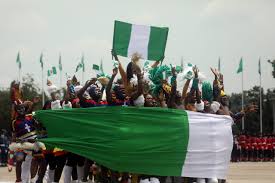On October 1st, 1960, the Union Jack was lowered, and the Nigerian green and white flag rose to the skies—marking the end of British colonial rule. After nearly 60 years of foreign domination, Nigeria became an independent state. But beyond the fanfare and symbolic handshakes, independence was just the beginning of a long and complex journey. Understanding this event is essential to grasp the full arc of Nigerian history.
The Path to Independence: Agitation and Awakening
The move toward independence began with rising nationalist consciousness in the 1930s and accelerated after World War II.
Drivers of Nationalism:
-
Educated elites, many trained abroad, began demanding self-rule.
-
Newspapers like West African Pilot voiced public frustration.
-
Pan-African ideas gained traction, inspiring unity and resistance to colonialism.
-
Political movements like the Nigerian Youth Movement (NYM) and NCNC grew rapidly.
By the 1950s, full independence was no longer a matter of “if”—but “when.”
Key Figures in the Independence Movement
Nigeria’s independence was not won by one person—it was the result of decades of effort by many.
-
Dr. Nnamdi Azikiwe: Leader of the NCNC, pan-Africanist, and the country’s first President.
-
Sir Abubakar Tafawa Balewa: Moderate Northern leader, became Nigeria’s first Prime Minister.
-
Chief Obafemi Awolowo: A champion for regional autonomy and free education.
-
Sir Ahmadu Bello: Premier of the Northern Region and founder of the NPC.
Despite their regional differences, they navigated Nigeria through the rocky terrain of pre-independence politics.
The Events of October 1st, 1960
Nigeria’s independence was peaceful, negotiated through constitutional conferences held in London.
The Big Day:
-
Queen Elizabeth’s representative, Princess Alexandra, handed over the instruments of independence.
-
Tafawa Balewa delivered Nigeria’s first independence speech as Prime Minister.
-
Celebrations erupted across Lagos, Kaduna, Enugu, and Ibadan.
-
Nigeria remained a constitutional monarchy with the Queen as symbolic head until 1963.
This day remains a national holiday, celebrated as Nigeria’s formal entry into self-governance.
Early Challenges of Nationhood
Independence did not magically erase the deep ethnic, regional, and religious divisions seeded during colonial rule.
Post-Independence Issues:
-
Political instability and rivalries among the three dominant regions.
-
Allegations of election rigging in the Western Region.
-
Ethnic favoritism in civil service and military appointments.
-
The 1963 creation of the First Republic, and a Republican Constitution.
These tensions would boil over by 1966, leading to military coups and eventually the Biafran War.
The Promise and Pitfalls of Sovereignty
Independence gave Nigerians the power to define their own destiny—but it came with daunting responsibilities.
-
Building national identity among over 250 ethnic groups
-
Developing infrastructure and economy with limited resources
-
Managing the discovery of oil in the Niger Delta, which soon became both a blessing and a curse
-
Balancing regional autonomy with national unity
The period between 1960 and 1966 is often called a “fragile golden age”—filled with both hope and hazards.
Legacy of Independence in Modern Nigeria
More than six decades later, the echoes of 1960 still shape Nigeria’s politics, society, and identity.
Lasting Impacts:
-
Federalism remains the cornerstone of governance, though often debated.
-
The Independence Constitution laid the foundation for later democratic efforts.
-
The symbolic value of October 1st strengthens patriotic unity.
-
Calls for restructuring reflect unresolved tensions inherited from colonial amalgamation.
Independence gave Nigeria sovereignty, but not instant stability—something still being pursued today.
Celebrating Independence in Contemporary Times
Every October 1st, Nigerians reflect on both triumphs and trials.
-
Parades are held in Abuja and state capitals.
-
Media and schools educate the younger generation on the nation’s founding.
-
Political speeches often reiterate unity, resilience, and the promise of a better Nigeria.
But increasingly, Independence Day also brings calls for deeper reform—to complete the project of freedom begun in 1960.
Conclusion: Independence Was the Beginning, Not the End
The story of Nigeria’s independence is not just about breaking free from Britain—it’s about embracing the responsibility of nation-building. From political crises to economic booms, from military coups to democratic elections, Nigeria’s journey reflects the complexities of managing diversity, ambition, and legacy. The significance of October 1st, 1960 lies not just in the past—but in how the nation continues to build on that foundation today.

Leave a Reply